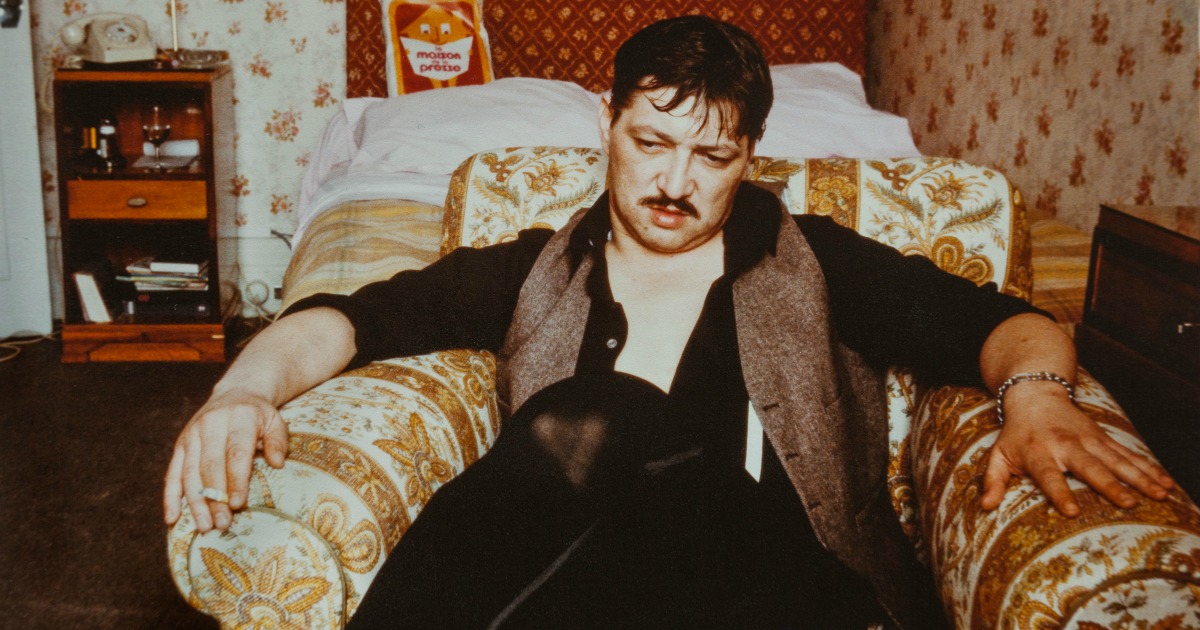
If the age old cliche is true, then true genius will not earn the proper respect and admiration until years after they have passed. Need an example? Subject number one: Rainer Werner Fassbinder.
While he’s garnered high praise before and after his deeply sad passing at the age of 37, the last few years, marked by numerous box sets of his work and various Blu-ray releases of his Grade-A masterpieces, have seen Fassbinder become a relative household name in arthouse and world cinema circles. And now he’s the subject of not one, but two documentaries, one of which debuts this weekend in New York for an exclusive one week engagement at The Metrograph.
With The Fassbinder Story waiting in the wings (it just played this year’s Kino! Festival in NY), director Christian Braad Thomsen attempts to discuss Fassbinder’s life in his own way with the superlative biographical documentary Fassbinder: To Love Without Demands. This is truly unlike any director biography you’ll ever seen.
Structurally, the film is rather standard. Thomsen’s voiceover is intriguing, but the real intrigue doesn’t come in the various talking head interviews he gets, but the numerous interviews with Fassbinder himself, where Thomsen pokes and prods the filmmaker in an almost psychoanalytic manner. The gem of the interviews comes at the 1978 Cannes Film Festival, with Fassbinder in the middle of premiering a new film, Despair. Clearly not in the best state of mind, this may at first glance feel like an exploitative bit of footage, but what Fassbinder reveals about himself, his childhood and particularly his relationship with his mother, is absolutely fascinating, and elevates this otherwise standard documentary. The film itself is even structured as a scholarly document, examining the life of Fassbinder, a life that just so happens to include some of the greatest films from the New German Cinema movement.
This is not documentary as entertainment as much as documentary as scholarship. While there are some lighter moments here, the film, and the only way one will truly find anything to take from it, is seemingly focused solely on deciphering his work on an auteur level. Fassbinder wanted to be among names like Shakespeare, Marx and Freud, and Thomsen looks at everything from casting his mother, Lilo Pempeit, as ostensibly a villain in a handful of his films, to his seemingly parental relationship with Andrea Schober that would result in her playing a child in many of his films. Is this him fulfilling his wish of having a child? Is she his proxy in the various broken homes her characters found themselves in? The beauty in this films comes from the love and affection given to Fassbinder’s canon, love and affection that manifests itself as deep intellectual discourse.
That all being said, the scope for this one is decidedly small. Playing on week exclusively at The Metrograph, Fassbinder: To Love Without Demands is typical biographical document in its aesthetics, but its mind is far more intellectually minded. Hopefully this will expand following its opening week, as this is a truly superb and important document for discussing Fassbinder. From his love of Sirkian melodrama to the deeply profound discussion of Brecht and the divided self, this is a deep dive into the mind and ultimately the work of one of the truly great German filmmakers.
In comparison to, and this will be a brief mention of, The Fassbinder Story, this is clearly the superlative piece of work. Annekatrin Hendel’s documentary about the life and work of Fassbinder is arguably more interestingly made (some of the footage here is genuinely gorgeous), but it’s also a decidedly simple viewing of his work. Primarily driven by interviews with those who knew him, we rarely see Fassbinder himself talk, at least at length, about his work, and while there are people interviewed here who don’t admire his work, the portrait painted is one of primary colors. Without ever getting to the actual roots of any of his issues, the film paints him as a controlling auteur who was vicious to work with and ultimately self destructive. The insights into films like The Bitter Tears of Petra von Kant are worth seeking out, but these brief analytic glimpses are few and far between. The central interview with Fassbinder shown in Fassbinder: To Love Without Demands is the crown jewel of these two new documentaries.



